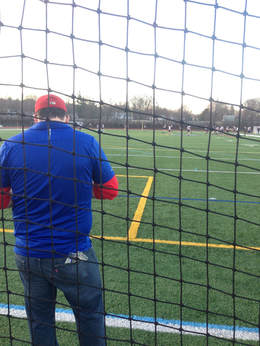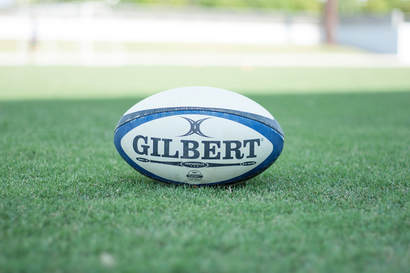|
A happy Thursday to you all, hope everyone is making the most of these good summer days, especially those in 4 season territory. I'm not going to waste your precious time with too much here today, but it's an important topic that I wanted to scratch the surface on. Go ahead, take a big exhale and enjoy it. There’s a lot that can be said about the relief just picking up a heavy object and putting it back down, can provide. I mean think about how angry, frustrated, anxious, depressed and just plain old upset you get in the course of a day…OK don’t think about it too long, you’ll hurt yourself that way. Now, think about how good it feels to go and hit your pillow, or a punching bag, to relieve some of those feelings (FEELINGS). Resistance training (lifting weights) isn’t a far cry away from throwing a right hook at a bag of cotton. You tend to have to get a little aggressive when it gets relatively heavy, right? Let’s get some basics out of the way, there are many kinds of stress, but what I’m talking about here is the type that wears you down and damn near kills you. There are also things likes stressors, things that cause you to go out of balance (good or bad) and eustress, which is basically good stress. Just as it is with anything, an extreme amount of any type of stress can cause health issues. Also, bad news, absurd amounts of exercise does not equal absurd amounts of results, stress relief in this case, but you know that already. Most of us know that exercise of all types releases endorphins, endorphins equals a happier person, generally. I mean there’s research out there from both Harvard and Duke that says weight lifting is good for your mental health in terms of anxiety and depression, surely they have a clue, no? There was also a study, referenced in Why Zebra’s Don’t Get Ulcers, where rats, put in different situations, were stressed (shocked). The rats stressed in isolation with nothing to do, developed ulcers. No stress doesn’t cause ulcers directly, but yes it is a root cause. They also stressed 4 or 5 other rats and gave them an outlet of some sort (other rats to socialize with, something to scratch and chew on, etc.). Those rats either developed ulcers at a lower rate or not at all. Simply put, you need a place to ditch all that stress. I advocate for weight lifting, but most exercise will do the trick though. The major problem people have with stress and dealing with stressors, is that most of us wait a full week to find that outlet, i.e. blow off some steam. Additionally, some of these end of the week methods and activities aren’t conducive to good health in the long run either. Now, if you choose an activity that you hate a.k.a. you hate lifting weights, it’s not going to help you avoid that ulcer and won’t let you relieve any of that stress because you’re not going to want to do it. If such is the case, I’d choose a different activity. Make sure your training level matches the level you’re at as well. Example, if you’re a novice in the exercise realm, Gerard Butler’s 300 workout might need to go on the back burner. I still maintain resistance training is king, but I’m a fan of finding modalities that you enjoy and complement one another. Don't forget, your food consumption can play a huge factor as well, but that's for another day. Coming back to the importance of exercise and mental health, pick up something heavy and tell me that you don’t start to feel accomplished, even just a little. Want a power up on this? Give yourself a goal to achieve, a challenge. Things like, performing a chin-up (or chin-ups), deadlifting double bodyweight, placing first in a powerlifting meet, or anything really. Working towards that (and hitting it) will give you an extra mega boost in accomplishment. That accomplishment turns into more endorphins and thus a happier human. Feelings like this give you that belief, that you can take on any challenge that’s out there. With that you will have a higher self-esteem, which generally leads to better mental health. I wish I could sit here and tell you that weight lifting could solve all of the world’s problems, it can’t, but it can certainly help solve the problems in everyone’s world. Hopefully post makes sense and makes you want to pick up something heavy, just a bit more, for your mental health. Even if you think you’re already physically in a good place, you have to take care of that brain too. I’ve also posted the link to the Harvard and Duke studies, if you want to read about the rat study, pick up Why Zebra’s Don’t Get Ulcers by Dr. Robert Sapolsky. Until next time, go out there and get after it. Harvard study Duke study
0 Comments
Happy Almost Independence Day my fellow Americans, hoping you all have something fun planned, because what is life without a bit of fun right? Today's post isn't so much about strength and conditioning, but still plenty to do with coaching. It's similarly titled and styled after a blog by a rugby coach from South Africa, Ross Munro Williams, find his blog here. Anyone that doesn't already know, I took a head coaching job for a high school rugby team this past spring, this post includes the things I believe I've learned. I’ll be truthful with you, I definitely have had ambitions of being a coach for a while. It started early in my college days, I got a chance to go back and help the youth rugby team I played for in Portland (Go Pigs). When I did it, I felt like I was giving back to the team that showed me the game I love. Honestly, at first I did it because I felt obligated, but it felt like more than that after by the second practice I helped with, something more significant, something special. After college I figured out if I was going to ever coach, I definitely wanted to do it at the college or high school level. It’s cliché, but you get to meet more people and, hopefully make more positive impacts in those settings. After living in Boston for a few years a chance to start coaching came up, hey what luck! I applied and was brought on to be an assistant at a local high school. After being the assistant for a couple years, the head coach moved to another head coaching job. Some poor fool decided I was going to be the next person to take charge. All kidding aside, I was really excited to take the reins. When you’ve had a time to think on it before you take your first job, you have an idea in your head about the type of coach you want to be. I certainly hope I was able to be a good coach, even if it wasn’t exactly what I had in mind. It’s been a bit more than a month since we close the books on the season, so I’ve had a bit of time to reflect on it, here’s what I think I learned in my first year; Plan and over plan for training sessions (ie practices); I knew I'd need a plan for trainings every day, but there was 1 day I made the huge mistake of not having enough planned. Thus, I was left scrambling for what drill or game would go with the theme of the day. With the players as smart they were, they saw it too. I only made that mistake once. I didn’t have everything planned right down to the second, but I certainly tried to keep a schedule, so we got in what we needed and weren’t left with loads of dead time. Lesson learned: Have plenty of extra drills in your back pocket (and not just the usual standbys neither). Take that plan and toss it out the window; Sounds contradictory of what I said above, but read on. Before the season started I had a general idea of how I wanted certain skills and portions of the game to build on one another. For those that don’t know, rugby is not a sport that is often played before the youngins get to high school. Every once in a bit, you get a player whose dad or mom played and taught them the basics, that's it. With that, we have to teach players at warp speed how to play the game, at least with my team. Reason being is that some of these newbies are going to get thrown right into their very first game. Digressing back, I had how I wanted to build up the skills planned out perfectly…or so I thought. After our first game I was defiantly forced to throw that plan right into the fire and adjust. I decided to not have a plan for more than two weeks ahead, that way if I needed to adjust, it wasn't a ton of time wasted and rearranging of things entirely. Lesson learned: Have adjustments ready, for all times and situations. Each player is a different individual; In the grand scheme you obviously want to be consistent across the board in every situation you can and treat every player the same. It’s not always so simple, each player needs to be coached and dealt with in different manners. Being a strength coach and working with people has already taught me this, but it's something I wanted to make sure was noted in this. Case and point, I’ve coached brothers on this team in various years and each of them responded differently to certain methods of coaching. Players personalities are likely what makes your team great because of the chemical balance within the team, still have to guide all of those personalities to pull in the same direction. The big thing I learned here is when you treat the players like adults, and with respect, you’ll get it reciprocated. Yes they are still young adults in high school, but they just want a little of what Dangerfield couldn’t get, that’s all. Lesson learned: Treat them as you expect to be treated You need your own support system; Holy smokes I did not realize this one, but looking back on the season I would’ve completely lost my mind if I didn’t have the people helping me that I did. Obviously starting at home with my wife and family, friends and teammates, then there were people like the AD and assistant AD, and other coaches, both with your team and on the opposing ones as well. As a first-year coach you definitely lean on them all. I’m certainly one that’s ok with not being the smartest one in the room, that said, if it remains that way year after year, there’s a seriously problem and it’s probably me. Still learning all the extra administrative and organizational stuff, but thankfully I have some to help fill the gaps. Lesson learned: You can’t do it by yourself, ever. Make sure it’s fun; I almost got caught ignoring this one in my first year. The first couple of games shook me awake for it. We did not have a successful year in terms of what the final scores were, but I considered it a giant win that each player still enjoyed their season. I’m one that certainly is passionate about the teams I support when watching sports, and passion in coaching is good, but you have to park it sometimes as to not detract from the atmosphere you’re trying to build. Of course I got mad and did a little yelling, I really hate yelling believe it or not, but I tried not to let it be the thing players, opponents, officials and parents, knew me for. Lesson learned; Don’t take it so damn seriously, it’s just a rugby game. This sport is a hard one on both the body and the mind, but at this level I love it because it can teach so many hard life lessons. Sometimes people screw up and you get the blame, sometimes you’ve done something well and the credit goes to others, and sometimes you put it tons of effort and don’t get the results you want. Other things I’m still learning are things like: -Players energy management -Recruitment -My own energy management -Homework and practice attendance -And a host of other little things I’ve definitely missed I'm sure the things I've learned will evolve and maybe there will be things I unlearn, for good reason, as I continue through coaching a team as the head man. In the meantime, I'm just going to enjoy the ride and focus on enjoying it while spreading the good word of the book of rugby. Anyone that ever has a question about this or any of my blogs, please feel free to contact me and I'll see you all next time. Enjoy your 4th of July America, then go out and get after it. |
Details
AuthorJarrod Dyke, CSCS Archives
July 2024
Categories |




 RSS Feed
RSS Feed